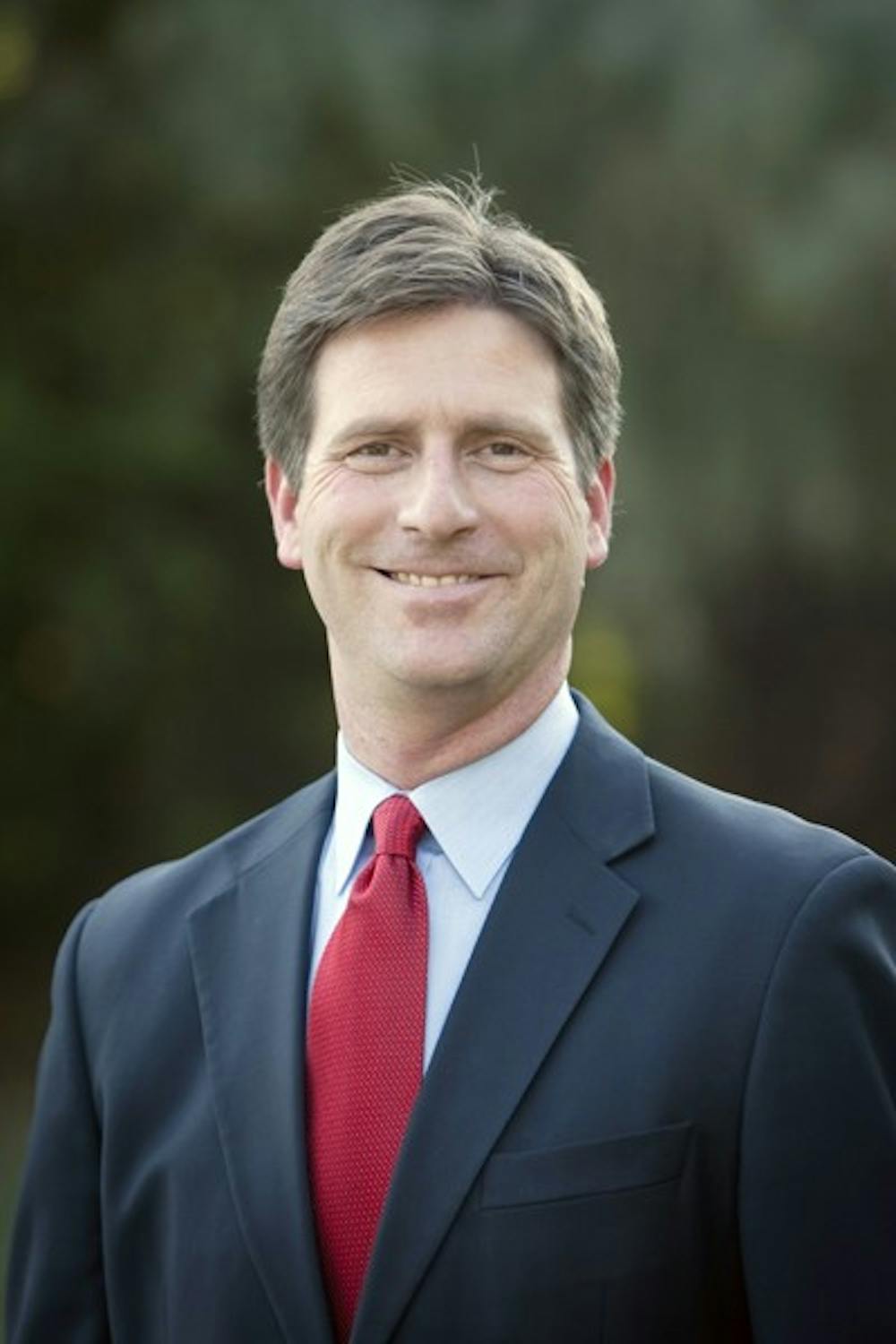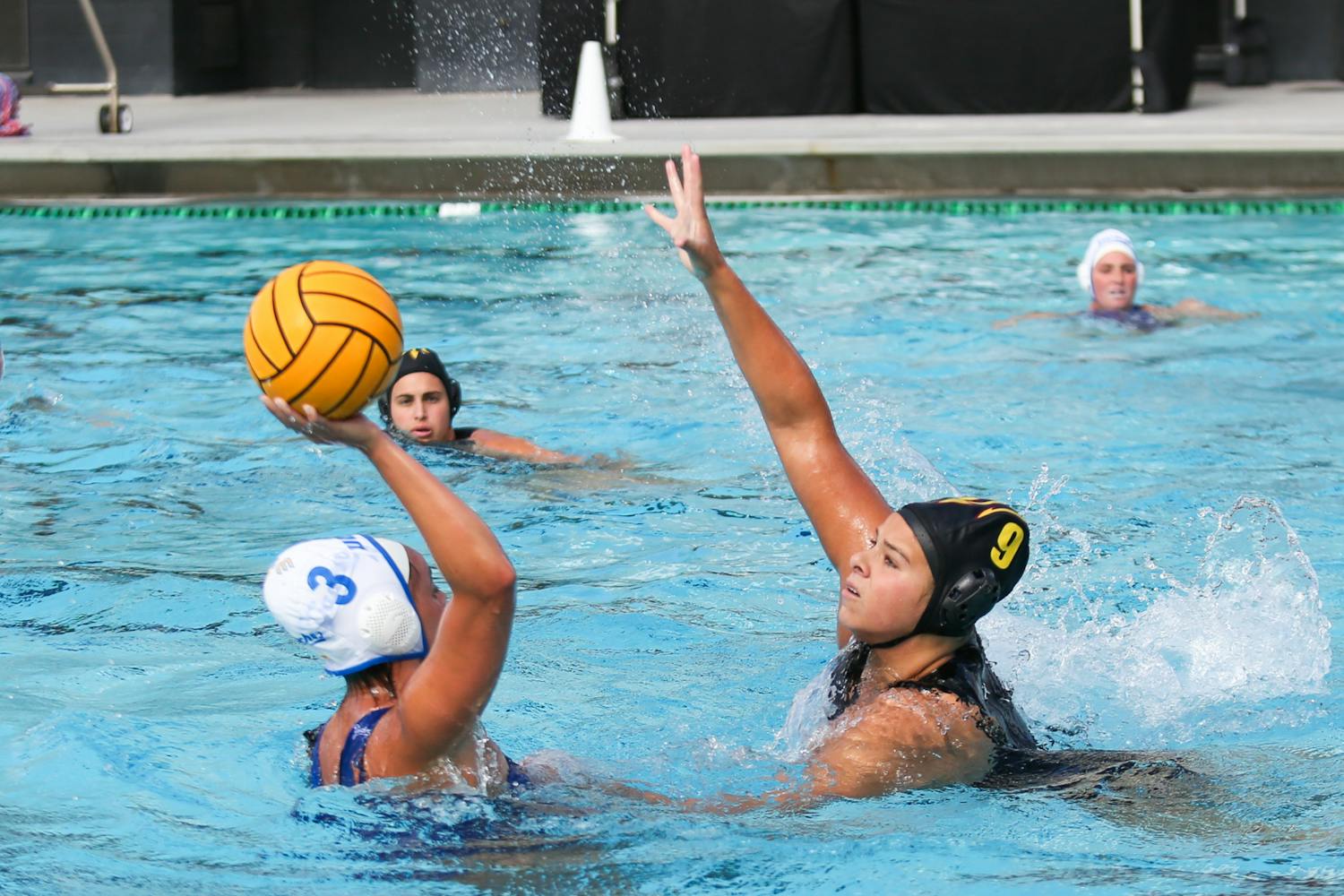Greg Stanton, a 41-year-old Phoenix City councilman and Phoenix resident since the age of three, entered the Phoenix mayoral race after securing 38 percent of the votes. Stanton served on the City Council for nine years and as Deputy Attorney General for one.
State Press: What made you decide to run for the mayor of Phoenix?
Greg Stanton: My kids. I mean, I’m here for as long as I live, I love this town and I’m fully committed to the future of Phoenix. I’ve got two young kids who I hope and pray decide to spend their lives here as well and I really believe we can build a better economy and longer-term diverse, sustainable economy which we currently don’t have. I want to be part of the solution and really help build the Phoenix that most people and I want to see in this community. I’m really just an old-fashioned public service-oriented person; I’m not really motivated by money. I’m motivated by trying to give back to this community.
SP: What makes you the most qualified candidate?
GS: I’ve got a track record. People know who I am and I’m running on exactly what I’ve done in my public service career which is fighting for high-wage jobs, the successful creation and maintenance of the ASU Downtown Campus and I fought to bring the UA medical school to the heart of the city. All of these things are going to create more vitality and sustainability in our economy. I balanced nine budgets when I was serving on the (Phoenix City) Council and as a result Phoenix has the highest credit rating of any city in the Valley; they don’t just give that away. I am a passionate education supporter, not only higher education but I’ve got a detailed plan about how the City of Phoenix can be a much stronger partner with our schools and I really believe that unless we put our arms around the schools, we simply cannot have the future that we all want. I’ve proven to be a strong leader with the right priorities and also to be a good fiscal steward to the city.
SP: Can you detail your plan to improving the education system in Phoenix?
GS: We need a mayor who is going to fight for early childhood education, make afterschool programs a much higher priority, create a mayor’s education roundtable as an education advocacy organization and go to local corporations to ask them to adopt a school through employee payroll deduction. My plan for improving education in Phoenix starts at Pre-K and goes all the way through to graduate school. We all need to be a part of the solution.
SP: How do you feel in comparison with the current mayor? What would you do the same and what would you do differently?
GS: I served many years with Phil, who has actually endorsed me as a candidate and I think overall he’s been a good mayor for the city of Phoenix. He’s been a champion for creating ASU Downtown; he’s been good on education issues which is something we share; and he’s been incredibly hard worker on behalf of the city. Where I’m going to be different is that I am going to be much more focused on building a transparent and accountable city. Obviously I’ve taken a policy of no lobbyists on city boards and commissions. I want people of the city to have confidence in the decision making of the city officials.
SP: What changes would you like to see in Phoenix?
GS: First thing I am going to do is make the city more transparent by doing very specific things. I want the meetings to be televised; the meetings to take place at night and not during the day to make them more accessible; all the meetings streamlined so they’re on the Internet; and for every single city document put on the Internet in a searchable format. I really want to boost public confidence in the councils and commissions by removing lobbyists. I just feel that lobbyists take away from the public confidence that decisions are being made in their interest, not the people’s.
SP: Wes Gullet has a “Seven Point Job Plan” to generate more work for the Phoenix population. Do you have anything similar to this?
GS: Yes, I have a very detailed jobs action plan. Arizona Contractors, the Arizona Architects Association and other business groups have all endorsed me as a candidate. Objective business organizations who have looked at both (plans) have chosen mine and when neutral businesses are choosing my plan for job creation and endorsing my candidacy, I know I am on the right track.
SP: In light of the recession and poor economy, how would you alter Phoenix’s budget?
GS: Well, the spending is based upon revenue and one of the things we’ve done every year as a city is, unlike the federal and state governments who borrow to meet costs, Phoenix doesn’t borrow to meet our general fund obligations; we balance our budget every year. We’re an old-fashioned entity in that regard. If revenues aren’t coming in, we have to cut and if revenues are increasing that allows us to reinvest in the city with things like libraries and afterschool programs. Actually revenues look like they’re going up right now, so the question becomes ‘What should we reinvest in?’ I think that youth programs and helping our youth really need to be our highest priority as the budget improves.
SP: Many students use the light rail for traveling and there has been discussion for expansion. What is your stance?
GS: I fully support it. I am a passionate public transportation advocate. I know the impact that it has on working class families, like the family I grew up in and the voters have supported it multiple times. The bottom line is you need an advocate in the mayor’s office and I’m that advocate.
SP: How would you like to see the Downtown campus grow and expand?
GS: I’ve been involved with the ASU Downtown campus since day one and am super excited by its success. I know ASU is continuing to make an ongoing investment on their side and I know how important a downtown university is both to the education of the students as well as the vibrancy of downtown. I plan to be a leader and continue supporting ASU Downtown and obviously we’re going to have to be more creative in supporting the campus because we won’t have any new bond dollars. I really want to see more parks and more play areas for kids. I want to make it seem more like a campus.
SP: How important is the youth vote to your campaign?
GS: It’s very important. If you were to come on any given night (to my campaign headquarters), you’d meet a wonderful group of young people that have made a commitment to helping with my campaign. This is a grassroots campaign; we simply couldn’t have been as successful as we have been if so many young people hadn’t decided that I was the right candidate. The student support has been tremendous.
SP: How would you like to see students get involved in Phoenix politics?
GS: Well, first and foremost, it’s their city and their future, so I don’t want to sound too cliché, but they have a huge stake in the outcome. I know young people today tend to vote a little less, but they’re still very active in the community. Volunteerism is up among young people, so obviously they care about the community. It’s not a knock on young people, its actually the opposite. I know young people care passionately but I wish they would see the connection more between the volunteerism and the care for the community and electing the right leadership for the city. It’s really important to encourage these kids to vote and play a role in their future; they have a stronger voice than they often think.
Reach the reporter at doberhau@asu.edu
Click here to subscribe to the daily State Press newsletter.





